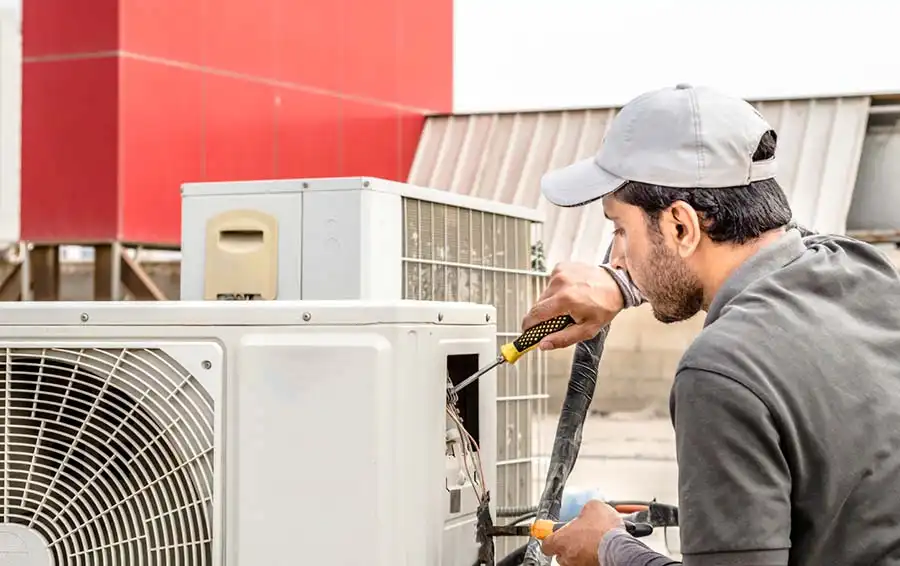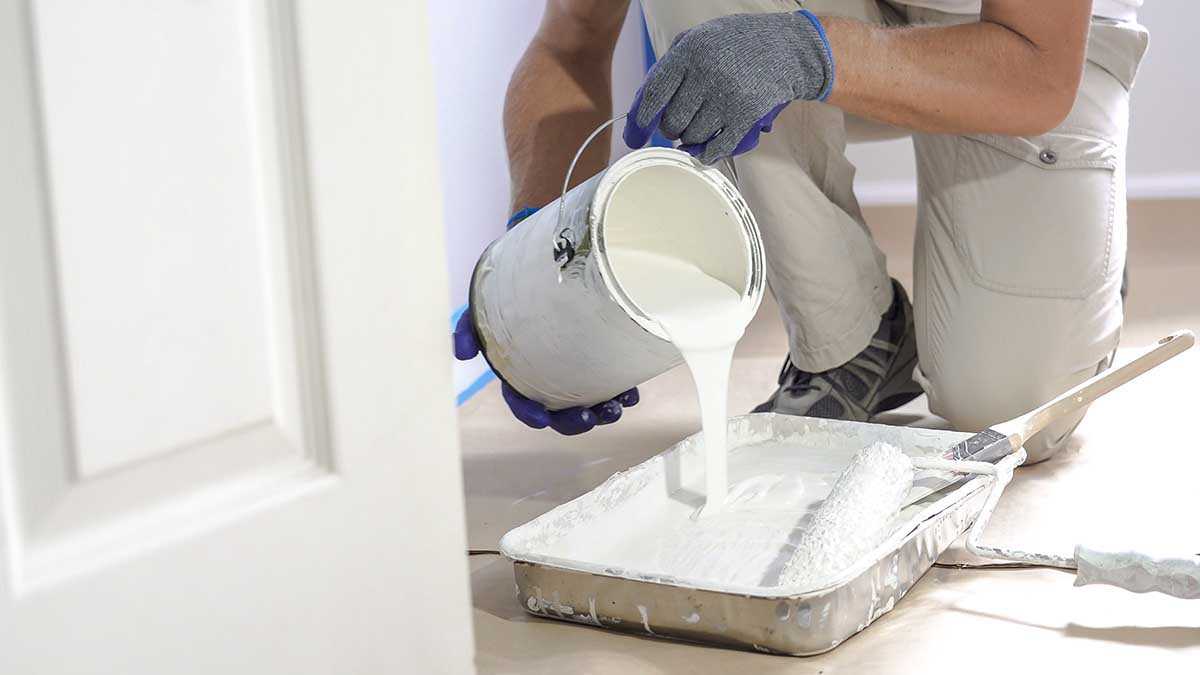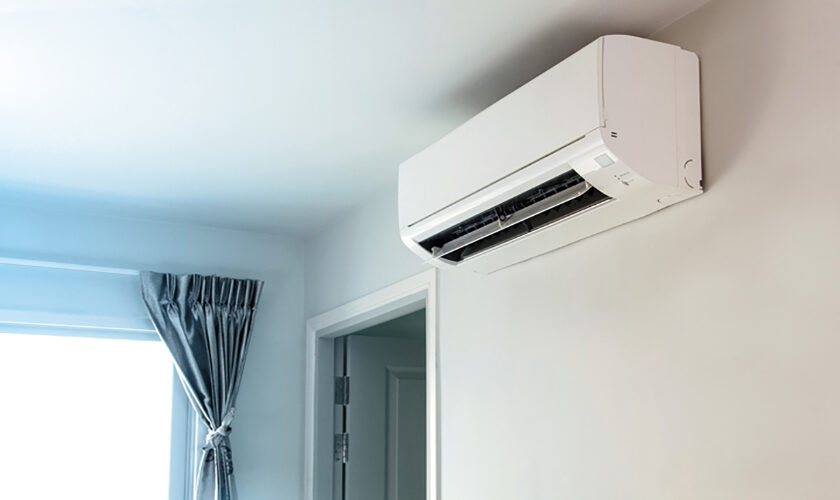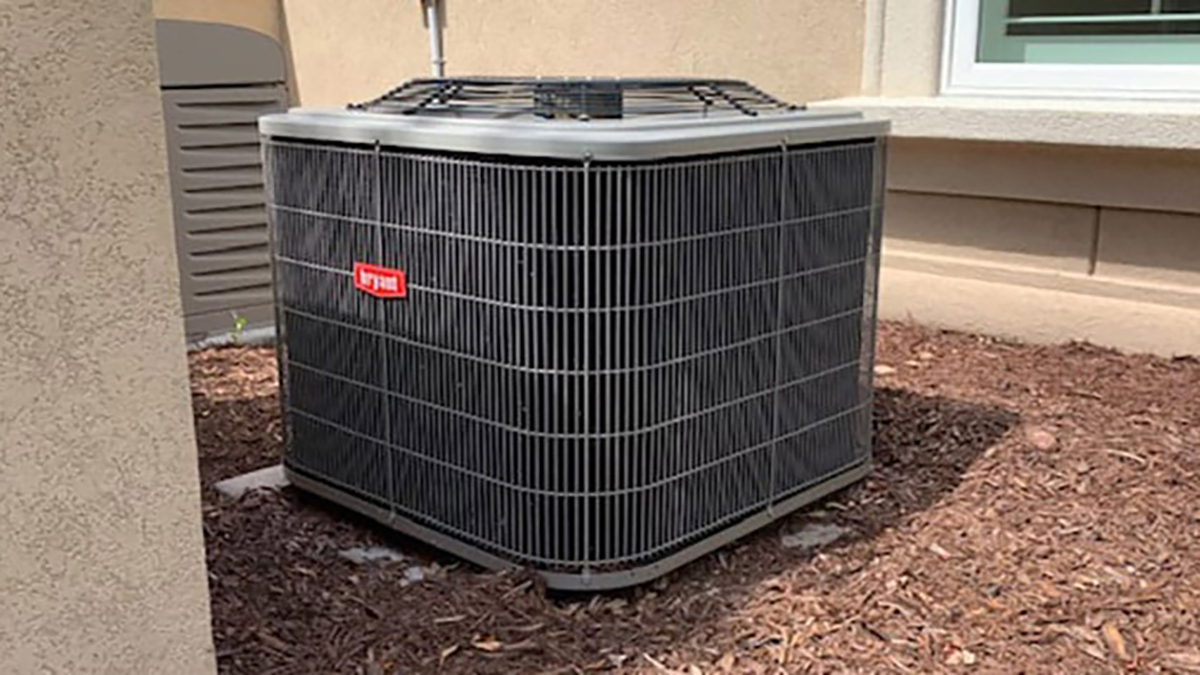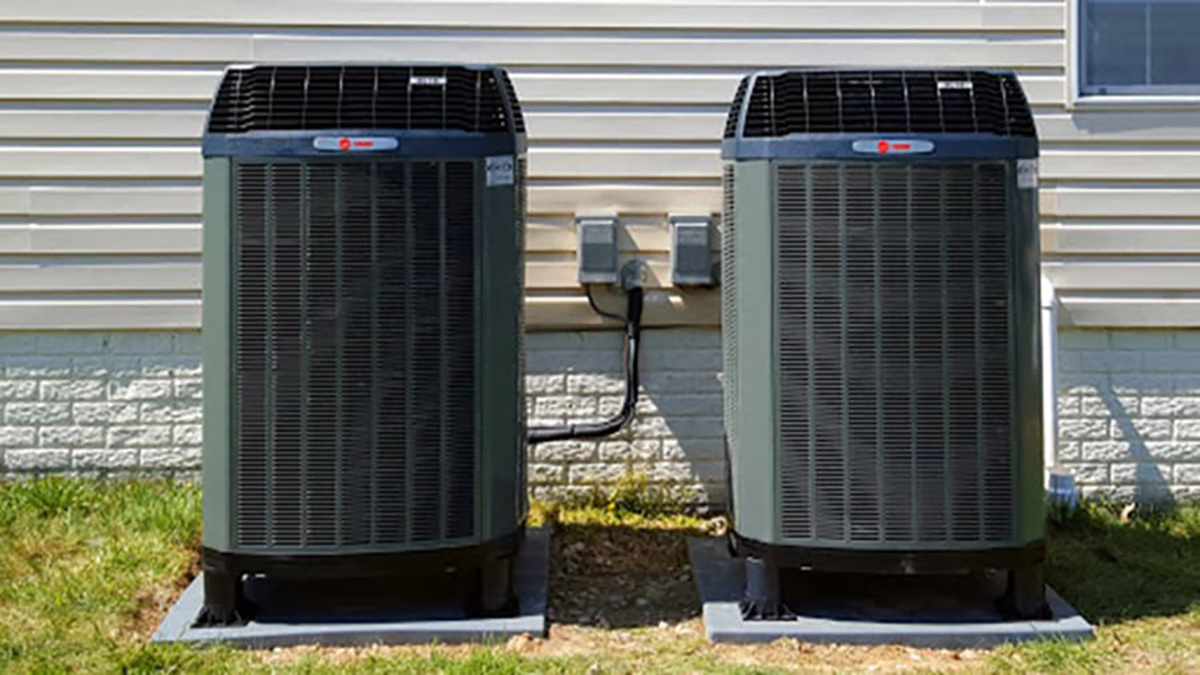A heat pump size calculator is essential for anyone looking to buy or install a new heat pump. It helps you determine the ideal unit size for your needs. With a heat pump sizing calculator, you can decide which central or mini split heat pump best meets your needs and budget.
Get FREE quotes from licensed HVAC contractors in your area today. Whether you need a new install, service, or basic repair We Can Help! All HVAC contractors are screened, licensed, and insured.
How to Use a Heat Pump Size Calculator
Using a heat pump sizing calculator is a great tool to determine what size heat pump you need for your home. It ensures that your system is properly sized to meet your heating and cooling needs while operating efficiently.
Our heat pump size calculator uses Manual J calculation for:
- heat pump sizing calculator
- mini split heat pump size calculator
- heat pump btu calculator
- heat pump size calculator by square footage
- heat pump tonnage calculator
Choosing the Right Calculator
When selecting a heat pump size calculator, be sure to choose one that is reputable and reliable. Many manufacturers and HVAC professionals offer online calculators to help with sizing, but it’s important to use one that considers your specific climate conditions and other factors.
Information Required to Size a Heat Pump Correctly
You must provide accurate information about your home, including your living space’s square footage, ceiling height, insulation type, number of windows and doors, and even the local climate conditions.
Step-by-Step Guide on Using a Heat Pump Size Calculator
1. Gather all the necessary information about your home.
2. Input the required information into the calculator.
3. The calculator will provide a recommended heat pump size based on your household needs.
4. Consider other factors impacting your situation, such as the unit’s location and ductwork installation.
5. Follow up with a professional to confirm your calculations and determine if additional adjustments are necessary.
It’s important to remember that a heat pump sizing calculator is just one tool in determining the right size ducted heat pumps and mini splits for your home. It’s always a good idea to consult an experienced HVAC professional to ensure optimal performance and efficiency.
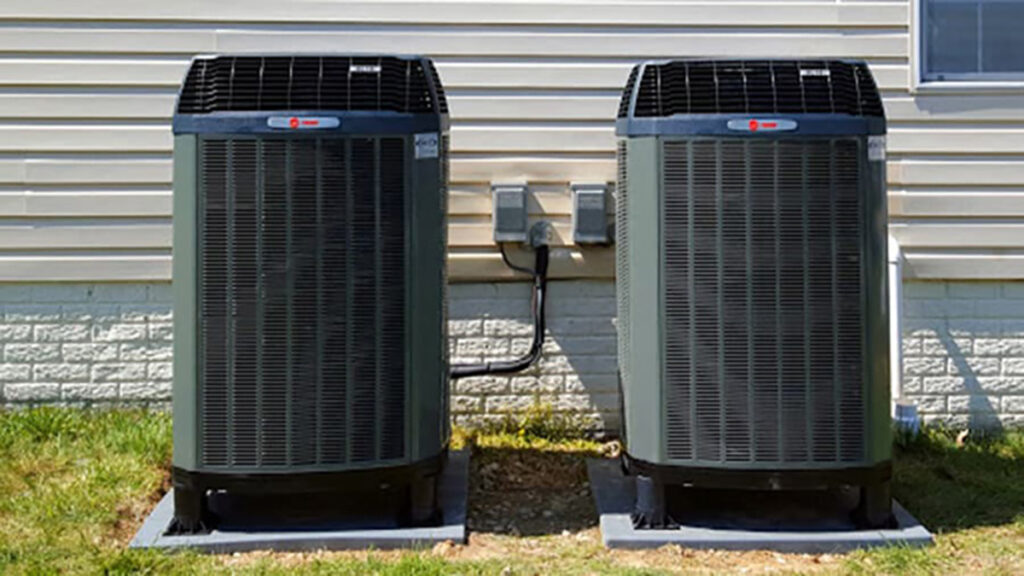
Advantages and Disadvantages of Using a Heat Pump Size Calculator
Using a calculator to size a heat pump provides numerous advantages.
Advantages of a Heat Pump Sizing Calculator
Here are some of the main benefits:
1. Accurate sizing: A heat pump calculator can provide accurate sizing recommendations based on specific factors of your home.
2. Energy Efficiency: Optimal sizing promotes energy efficiency and lower costs.
3. Cost savings: Proper unit sizing can save you money in the long run.
4. Saves Time: A heat pump calculator speeds up the process, saving you time with accurate recommendations.
Disadvantages of a Heat Pump Sizing Calculator
However, some disadvantages come with using an online heat pump calculator.
1. Inaccuracy: The calculator can only provide recommendations based on the information you provide, so if it’s inaccurate, the calculations will be off too.
2. Additional variables: There are additional variables with heating and cooling systems, and some may not be accounted for in the calculator.
3. Consultation: To get the best results in determining the BTU demand, it is still important to consult with experienced professionals.
4. Technical difficulties: Issues can arise when inputting data into the online calculator, which may cause inaccurate results.
Considering these advantages and disadvantages when using a heat pump size calculator is important. Despite the limitations, a heat pump calculator can still provide valuable information. It’s best to use one and professional consultation to determine the most accurate size recommendations.
The Importance of Sizing Heat Pumps Correctly
Sizing your heat pump correctly ensures optimal performance and energy efficiency. A heat pump that is too small will struggle to keep up with your home’s heating and cooling demands, resulting in increased energy usage and higher costs. On the other hand, a heat pump that is too big will also waste energy and unnecessarily increase costs.
Sizing Small Heat Pumps
For smaller heat pumps, it’s important to ensure they are appropriately sized for the specific room in which they will be used. If you install a heat pump that is too small, it will not heat or cool the room effectively. This can result in constant running, which can wear out the unit and lead to higher energy costs.
Sizing Large Heat Pumps
For larger heat pumps, improper sizing can result in wasted energy and, ultimately, higher costs. A heat pump that is too large for your home will cycle on and off frequently, which can shorten how long a heat pump will last and lead to higher maintenance costs.
The Relationship Between Proper Sizing and Energy Efficiency
Properly sizing your heat pump is essential for energy efficiency. Choosing the right size unit ensures that your heating and cooling needs are met while minimizing energy consumption and costs. A properly sized heat pump will also run more efficiently and keep your home comfortable without overworking the unit.
What to Do Once You’ve Determined the Correct Heat Pump Size Calculation
Once you have determined the correct size for your heat pump with a reputable calculator and professional consultation, you should take a few steps to ensure optimal performance and efficiency of your unit.
Consult with Experienced Professionals
Consulting with experienced HVAC professionals ensures your heat pump is correctly sized and installed. Get a professional to check your calculations and confirm that the recommended size is the best option for your home’s needs. They can also help you with additional variables, such as the location of the unit and ductwork, that can impact the unit’s efficiency.
Make Sure the Heat Pump is Installed Properly
It’s important to have a professional install your heat pump. An incorrectly installed unit, regardless of its size, will not work correctly and may not function at peak performance. You can also consult with the installation team to determine the optimal location for the unit best to serve your home’s heating and cooling needs.
Sign Up for Regular Maintenance Programs
Regular heat pump maintenance is essential to keeping your heat pump running efficiently. Signing up for a maintenance program with a trusted HVAC company is a great way to ensure it is always in good condition and working properly. The technicians can perform important tune-ups, such as cleaning filters and checking refrigerant levels.
professionals, and investing in regular maintenance, you can enjoy the full benefits of your heat pump.
Frequently Asked Questions
Here is a list of frequently asked questions about sizing heat pumps.
How do I calculate what size heat pump I need?
To calculate the size of the heat pump you need, perform a heat load calculation using the following formula:
Heat Load (BTU) = Area (square feet) x Temperature Difference (°F) x 1.1
How many square feet does a 3 ton heat pump cover?
A 3-ton heat pump typically covers 1,800 to 3,000 square feet. It’s important to factor in the size and age of your home, insulation levels, and climate when selecting a heat pump.
What size heat pump do I need for 2000 sq ft home?
For a 2000 sq ft house, you would need a 2.5 to 4-ton heat pump. A 3-ton unit can effectively cool and heat up to 36,000 BTU/hour, while a 4-ton unit can handle 48,000 BTU/hour. It is recommended that homeowners size their heat pumps based on the Manual J Calculation.
What size heat pump do I need for 1500 sq ft home?
You would need a 2-ton (24000 BTU) to 3-ton (36,000 BTU) system to cool 1500 square feet effectively.
Is it better to oversize or undersize a heat pump?
It’s best to have a properly sized heat pump for your house and needs. If your house is well-insulated, you could undersize the heat pump or air conditioner. However, in older houses that aren’t insulated well, you’d be better served by a slightly oversized system to account for heat loss.
- Inspectapedia: Climate Zones & BTU Requirements – Heating & Cooling BTUs by U.S. Climate Zone
- Energy.gov: IECC climate zone map


